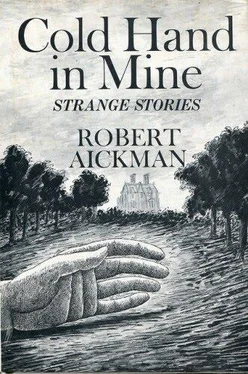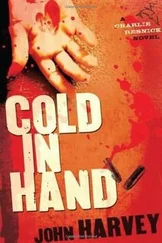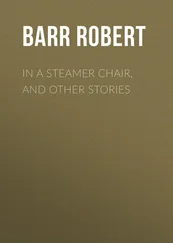Major Valentine had been a comrade of my father's in the trenches. I first met him when he came to visit my mother after it was all over. He turned up one day, still in a "trench coat", and in the course of conversation remarked that the war had changed many people's ideas about the sort of books they wanted to read, and that he was going to put his gratuity into setting up as a publisher. I was eighteen at the time and I was pretty certain that there was an unbridgeable gulf between the amount of a major's gratuity and the topless tower of phantom gold needed even by the wariest of publishers. I knew a little about it because already I was set upon being a writer myself, and took the current Writers and Artist's Year Book to bed with me nightly until my bloodstream had absorbed all it had to teach or hint at. But naturally I said nothing, because in those days boys did not venture to carp at mature men, let alone when the mature men were war heroes also; and I was rewarded by being offered an "editor's" job there and then, no doubt in part as tribute to my father's memory and my mother's obvious problems. The American term "editor" was not then commonly used in the context of publishing, and my father's friend was already displaying how modern he intended to be. Before the war he had been a free-lance journalist. He actually so described himself to me, possibly because he claimed also to have made a success of it, which is most uncommon.
I had been cheaply and indifferently educated in the formal sense, and against a stressful and impecunious home life. Fortunately for me, formal education counts little for most artists (and, according to my experience, less than is commonly supposed for most other people). Though I wanted "to write", I had little idea of how to earn money at it — and a complete mental blank, with unpleasant elements of panic, whenever I thought about trying to earn money at anything else. Valentine made it clear that he was not yet in a position to offer enough to maintain me; but I clutched with joy and relief at the proffered regularity of his pittance, explained myself to my mother that same evening (Major Valentine could not stay to supper, and it was just as well), and was set up within the month in Brandenburg Square.
Valentine was never in a position to pay me much more than he paid me at the outset; but I beavered soberly around, and wrote increasingly persuasive letters, so that other jobs came in, a usefully wide variety of them, perhaps, when I came to writing my own first novel.
Major Valentine's subsequent career may as well be disposed of now: pornography is never — I think I may say never — as lucrative as it seems likely to be (I refer to the pornography that is recognized as such), and within three or four years Valentine turned to schoolmastering and then went back to the army as an instructor. In the end, he married. It was rather late in life, by the usual standard: but he married a woman who was older than he was, none the less, and she seemed to make him very happy — or perhaps keep him so, as he always seemed a happy person by nature. I went to visit them on several occasions, and certainly Valentine was living in very much better style than ever before when I had known him. Moreover, he was now a lieutenant-colonel. I suppose he had taken up with the Territorials. He was even fortunate in the manner of his death, which was in a fishing incident, and, they said, instantaneous.
When I took possession of my Brandenburg Square attic, there were two tenants below me.
On the second floor was the office of a political weekly named Freedom . Though appearing in English, it seemed to be produced by a staff composed entirely of foreigners, some of whom appeared to have difficulty even with conventionalities about the weather or the staircase cleaning when I chanced to run into them on their landing. A surprisingly large number and variety of them were encountered by me during the six months or so we were in the building together. I wondered how the paper could maintain them all, especially as it was hard to believe it had much sale among the general public. From time to time I used to extract copies from the waste sacks left out at night.
In the basement of the building lived a young man and woman of mildly intellectual aspect. At that time, however, the man worked in the local branch of a well-known provisions chain; and the woman had a part-time job with a credit bookmaker. These dispositions were consequent upon their having four children and, therefore, little margin.
Even the very smallest of the children, none the less, had reached some kind of age for schooling; and the young wife used to flit up to my attic in the afternoon for a cup of coffee and a talk after her return from the bookmaker's establishment and before her departure to collect the child.
At first, I was not too keen. I was scrupulous about her position as a married woman living in the same house. Moreover, her visits soon became more and more frequent, almost daily; while at the same time I noticed that she always refused to commit herself about the day following, which I thought vaguely sinister. I fancied I owed it to myself to object a little to being interrupted in the course of composition (or editorship). Needless to say, none of this reserve availed for much or for long. It was no more than the subjective initial slowness or protest of the youthful male, respectably reared. Soon I was looking forward to this woman's visits so much that my morning's work suffered noticeably; and regretting in an entirely different way her continuing refusal to say whether tomorrow she would be back. "I simply can't tell you," she would reply. "We must make the most of the present." But her putting it like that helped to make it difficult for me to do so. Her name was Maureen. The name of her husband was Gilbert. Once she asked me to visit their place after the evening meal, but it could hardly be expected to be a success. The husband just sat there, worn out after a hot day in the provisions shop, and reading the New Statesman ; and two or three of the children were old enough to stay up and ask questions and fall about. We never tried it again, I think.
The ground and first floors of the building were originally unlet, but that could not be expected to continue for very long now that the country was getting back on to its feet again. All the doors on to the hall and staircase were kept locked, and Maureen used to complain that it made the house seem depressing. I told her that it made for peace and quiet, but I appreciated that peace and quiet were not what Maureen was principally looking for, despite the hullaballoo of four small children in a not very large flat. One day I observed her in conversation with the window cleaners who swilled away once a month at the outsides of the never opened sashes. Of course they were glad of a few words with a pretty housewife having time on her hands. "They say there's nothing inside but emptiness," Maureen told me later. I made no comment, but filled in by kissing her hair or something of the kind. Maureen had at that time rather droopy hair, possibly owing to lack of vitamins during the war; which she kept off her brow with a big tortoiseshell slide. Her brow was really beautiful, and so were her eyes. They had that gentle look of being unequal to life, which, as I later realized, always attracts me in a woman.
One night the numerous office staff of Freedom did not depart at the usual hour; and, as late as ten or eleven o'clock, looking over my banister, I saw them still heaving and rolling great packages on the landing below. They were being very quiet about it as far as conversation went: not at all like foreigners, one felt. Obviously, there was a crisis, but for that very reason I felt it unkind to probe. In bed, I was kept awake not merely by the stolid thumping downstairs but also by the likelihood that the crisis was one affecting the whole building and the harmless, neutral way of life we had all worked out within it. Conceivably it was my first clear apprehension of the truth that is the foundation of wisdom: the truth that change of its nature is for the worse, the little finger (or thick gripping thumb) of mortality's cold paw.
Читать дальше












